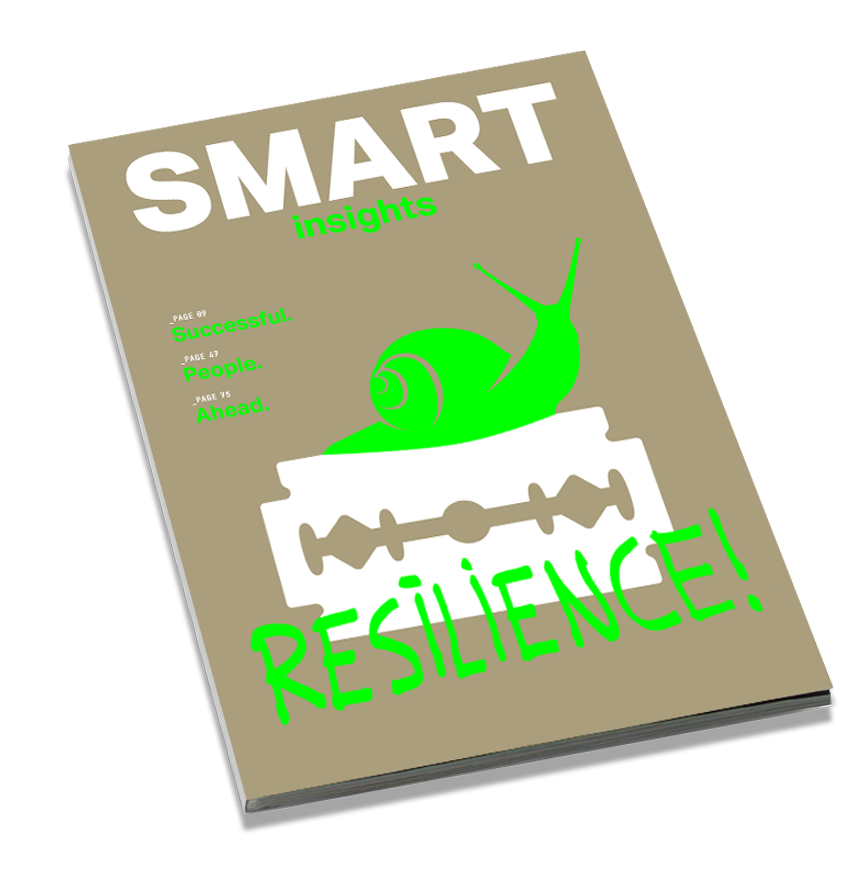This interview was part of the Ergon Magazine SMART insights 2021. Order your free copy now ->
Building trust with empathy, keeping promises and motivating by listening – team workers create an atmosphere in which everyone is comfortable, works effectively and progresses together. No one is left behind.
You lead a big team of around 30. How do you ensure that everyone stays motivated and engaged?
A large part of that is down to soft skills, in my opinion. Empathy, mindfulness and positive thinking are important, as is creating and fostering cohesion. For me, mindfulness means being present, giving people your time, wanting to listen and concentrating fully on the person you're talking to.
Giving 30 people your time sounds like a major undertaking. How does it work in the day-to-day?
I talk to my colleagues more as the need arises rather than according to a rigid timetable. With all the different project meetings we have, our working lives are scheduled enough. Given the time we have, it’s obviously impossible to have regular one-to-ones with everyone. I’m very glad to have eyes and ears in the team who are like additional sensors. They let me know what's going on and tell me what I need to be aware of because they've heard this or that and I should do something about it. That takes a lot of trust and I’m very glad my team has that.
Does anyone ever fall through the net?
It's not easy to catch everyone but with enough intuition it hopefully works most of the time. The company's performance review season is a good indicator for me, when I have meetings with everyone between January and March every year. That means I've certainly heard from each individual once during the first quarter – and in a different setting, too, so you get to see a different side. That's sometimes when issues will be raised that give me a clue as to what I should keep an eye on, or where I need to find out more.
"Keeping your promises is very important in building trust."
You talked about trust. How do you create a basis of trust in your team?
By listening and, most of all, commitment. In other words, I try to keep my promises. If I were to promise someone that I would get back to them next week and I didn’t – for whatever reason and whether I apologised or not – then that person might try me again but probably not a third time. They had something important to discuss the first time and they weren't heard. Keeping your promises is very important in building trust. Showing interest and listening are critical if someone is going to confide in you.
How do you build a culture of trust between team members?
That's definitely harder. I think it's closely linked to feedback culture. We do that well at the technical level, in code reviews and retrospectives but feedback at the personal level is a delicate thing that has to be actively cultivated and practised. What I think helps is to be an authentic example, as well as the ability to try it out in different formats. The team has to want cohesion, of course, but it is crucial. That’s especially true in a multi-project setup as in our team, where we have numerous people working on numerous projects.
How do you ensure that each member of the team is both supported and challenged?
It's the supreme discipline for all team leaders but I've got a few ideas of how to do it better. There are certain frameworks that I can create. For example, I can't say that I want to see someone develop and then fully book them with project work all year. I have to make the space that they need. I also have to know their interests, which takes me back to listening. Then I’ll also try to put people in contact with each other, to get those with the same interests talking. With a team of 30 there's a limit to what I can do there. That's why I'd like to see team members building those bridges for themselves, across generations, too. Newcomers should have the chance to chat to old hands. Everyone can benefit from that.
This interview is part of the series "Unsung heroes" in SMART insights 2021. You can find an overview with all interviews here.
Interested in more?
Digitisation projects
Change makers
Tech trends
Order now
